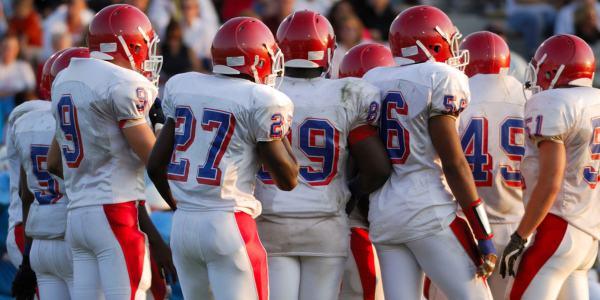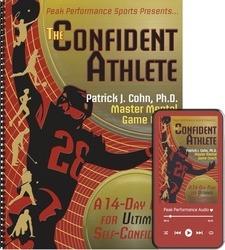
Visualization Skills for Athletes
Being focused in the present moment is essential for athletic performance, but many athletes struggle with maintaining this type of focus, especially after making mistakes.
Often athletes make faulty predictions based on past outcomes. These faulty predictions are accompanied by negative images where the athlete sees themselves messing up in their next game or competition.
For example, a gymnast who had a bad week of training on the balance beam may falsely conclude that she will mess up her balance beam routine at her next competition. As she stands on the mat getting ready for her routine, images of falls, bobbles and under rotating her landing fill her head…
A softball pitcher who struggled with her control over the past two games may expect her pitching woes to continue in her next start. While in the dugout, all she sees in her mind is throwing one wild pitch after another…
A tennis player who has lost eight straight points in the first set, may expect to continue to lose consecutive points. As he goes through his pre-serve routine, all he sees are images of double-faulting and losing more points.
Interrupting these negative images and try to replace them with positive ones.
Positive images send positive messages helping you focus on what you want to happen instead of what you fear might happen.
Focusing on the moment is exactly what helped University of Tennessee’s junior guard Lamonte Turner sink the game-winning shot that helped Tennessee beat Kentucky, 82-78 in the 2019 SEC tournament semifinals.
Prior to making that game-winning 3-pointer, Turner only made one of his last 19 3-point shot attempts over the last six games.
Tennessee rallied late in the game erasing an eight-point deficit with just under three minutes remaining in the game.
How exactly was Turner able to focus while playing a highly-ranked team, trailing late in the game and missing 18 of his last 19 3-point attempts?
Instead of replaying the images of past missed attempts, he focused on making the game-winning shot.
TURNER: “You know how many game winners I hit against Kentucky in my head? I have done this a million times. To do it now, it feels good.”
That’s right, Turner has played out this scenario in his head hundreds of times.
This is the reason that visualization is such a powerful tool for athletes and a skill all athletes should take time to develop.
How to Improve your Visualization Skills:
Identify one simple skill in your sport.
First, visualize yourself performing a task successfully in practice. Next, visualize performing that same task in a competition. Lastly, visualize yourself performing that task successfully in a pressure situation in competition.
Be sure to take a first person perspective when using visualization.
Related Sports Psychology Articles
- How to Pros Use Visualization to Improve Success
- How Elite Athletes Use Visualization
- How Visualization Helps Athletes
*Subscribe to The Sports Psychology Podcast on iTunes
*Subscribe to The Sports Psychology Podcast on Spotify
Download a free sports psychology report to improve your mental game!
Learn more about our one-on-one mental game coaching.
The Confident Athlete

“The Confident Athlete” consists of 2 audio programs that include 14 days of confidence fueling exercises and a simple to follow workbook that guides you through the 14 days, helps you apply the strategies, and customizes the exercises to your personal needs.
Let me help you put a stop to the confidence leak. You can learn to have greater levels of confidence in competition than you do in practice by identifying the specific ways you undermine your own confidence and how to convert your practice confidence into COMPETITIVE CONFIDENCE.
“The Confident Athlete” is a ground-breaking system to teach you how to think like a champion and have ultimate self-confidence every time you step on the playing field, court, track, or course. The confident athletes was developed for any athlete – junior to professional –that wants to gain confidence. However, coaches and sports parents can learn how to teach others to perform with ultimate confidence. Use my program if you want to bust a slump or just wanting higher or more consistent levels of self-confidence.
